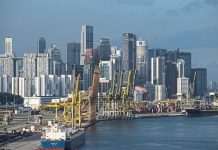
Coffee customers around the world are now experiencing a rise coffee prices due to coffee-producing countries like Brazil and Vietnam to battle against unfavourable weather conditions and are struggling to meet market demands.
Despite being the world’s largest exporter of Arabica coffee, Brazil is currently facing one of its worst droughts in history, followed by frost and excessive heat, severely reducing crop yields.
Meanwhile, Vietnam – the top producer of Robusta – is struggling to manage through prolonged droughts and heavier-than-usual rainfall.
In December, the price of January futures for Robusta coffee reportedly rose above US$5,885 per tonne in November 2024, a level that was last seen in early 2008, while the price of Arabica coffee beans increased above US$7,300 per tonne, a record that was last seen in 1977 that marks a staggering 83% increase in 2024.
According to the Department of Statistics Malaysia (DOSM), Malaysia imports most of its coffee beans from Vietnam, Indonesia and Brazil and that Malaysians consume an average of 2.2kg of coffee in 2022, which is a 5.2% increase from 2017.
Hence, Malaysians have begun to consider opting for more affordable alternatives such as switching to cheaper coffee joints or even brewing the coffee themselves compared to visiting their regular cafés.
On the business side, café owners are adapting to the price surge by rethinking their pricing strategies and alternate coffee bean sources such as Ethiopia and Colombia.
At the same time, Malaysian café owners and consumers might look towards achieving greater recognition of the local coffee industry by becoming a specialty-grade producer itself, to help reduce the reliance on imported beans and enhance the local coffee market.
























